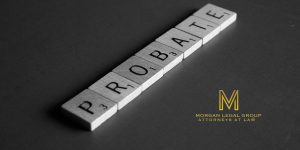When it comes to protecting one’s assets and ensuring the smooth transition of wealth to future generations, the question of whether to put a house in trust looms large. As experienced practitioners in estate planning at Morgan Legal Group in New York City, we understand the complexities and nuances of this decision. In this article, we will delve into the considerations and implications of putting a house in trust, exploring whether it is a prudent strategy for safeguarding your family’s financial future.
Key Considerations When Putting Your House in Trust
When considering whether or not to put your house in trust, there are several key factors to take into account. One important consideration is the level of control you wish to maintain over your property. Placing your house in trust means transferring legal ownership to the trust, which may limit your ability to sell or refinance the property without the consent of the trustee. Additionally, you must consider the potential tax implications of putting your house in trust, as well as any impact on Medicaid eligibility or other government benefits.
Another important consideration is the protection of your assets from creditors. Placing your house in an irrevocable trust may offer some protection from creditors, as the property is no longer considered part of your personal assets. However, it is essential to understand the limitations of this protection and consult with a legal expert to ensure that putting your house in trust aligns with your overall estate planning goals.

Benefits of Putting Your House in Trust
Putting your house in trust can be a wise decision with various benefits. One advantage is avoiding probate, which can be a lengthy and expensive legal process. By transferring your home to a trust, it allows for a seamless transfer of ownership to your beneficiaries upon your passing, without the need for probate court involvement.
Another benefit is privacy. Unlike a will, which becomes public record upon your passing, a trust allows for your assets, including your home, to remain private and out of the public eye. This can help protect your family’s privacy and prevent potential disputes.

Potential Drawbacks of Putting Your House in Trust
Putting your house in a trust can provide numerous benefits in terms of avoiding probate, ensuring privacy, and simplifying the transfer of assets. However, there are also potential drawbacks that should be carefully considered before making this decision.
One potential drawback of putting your house in trust is the loss of control over the property. Once the house is transferred to the trust, the trustee becomes the legal owner of the property, which means that you may no longer have the ability to sell, refinance, or make other major decisions regarding the property without the trustee’s approval. Additionally, transferring your house to a trust may also impact your eligibility for certain government benefits, such as Medicaid, as the property may be counted as an asset when determining eligibility.

Expert Recommendations for Establishing a Trust for Your Home
When it comes to protecting your most valuable asset – your home – establishing a trust can provide numerous benefits. Here are some expert recommendations to consider when deciding whether putting your house in trust is a good idea:
1. **Avoiding Probate**: Placing your home in a trust can help your loved ones avoid the lengthy and costly probate process after your passing.
2. **Asset Protection**: A trust can shield your home from creditors or legal judgments, providing peace of mind for you and your beneficiaries.
Q&A
Q: Is it worth putting the house in a trust?
A: Many people consider putting their house in a trust as a way to protect their assets and control their estate planning.
Q: What are the benefits of putting a house in a trust?
A: Placing a house in a trust can help avoid probate, reduce estate taxes, and provide for efficient management and distribution of assets after death.
Q: Are there any downsides to putting a house in a trust?
A: While there are advantages to putting a house in a trust, there can also be drawbacks, such as the costs associated with setting up and maintaining the trust.
Q: What factors should be considered before putting a house in a trust?
A: Before putting a house in a trust, individuals should consider their long-term financial goals, the potential impact on their heirs, and consult with a financial advisor or attorney to determine the best course of action.
Q: How does putting a house in a trust affect ownership and control?
A: Placing a house in a trust transfers ownership to the trust, which is managed by a trustee, potentially limiting the control the individual has over the property.
Q: What are some common misconceptions about putting a house in a trust?
A: Some people mistakenly believe that putting a house in a trust means losing control of the property or being unable to sell it, when in reality, trust arrangements can be flexible and tailored to individual needs.
Final Thoughts
In conclusion, the decision to put your house in trust is not a one-size-fits-all solution. It is important to weigh the benefits and drawbacks based on your specific circumstances and financial goals. Consulting with a trusted legal advisor or estate planning professional can help guide you in making the right decision for you and your loved ones. Remember, the best choice is the one that aligns with your individual needs and priorities. Ultimately, the decision to put your house in trust is a personal one that requires careful consideration and planning.







